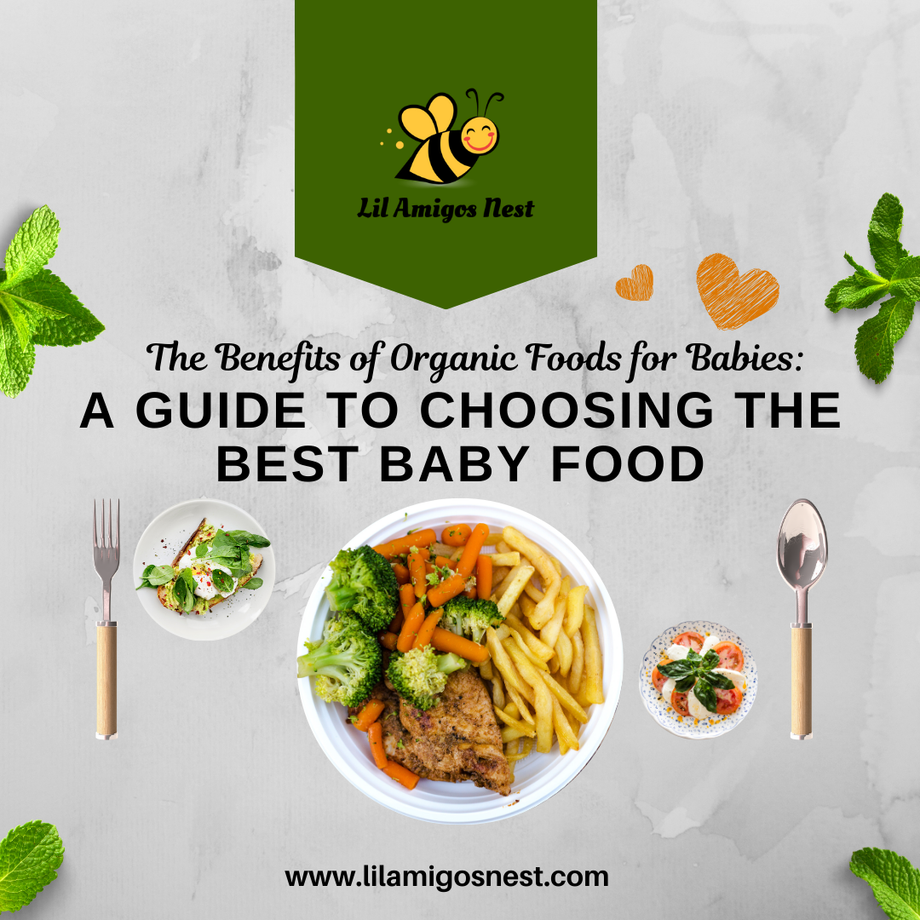As parents, ensuring the health and well-being of your baby is a top priority. One of the most crucial decisions you’ll make is what to feed your little one. With increasing awareness about the potential impacts of pesticides, GMOs, and additives, many parents are turning to organic baby foods. But what exactly are the benefits of choosing organic foods for your baby? This guide will help you understand why organic baby food is a smart choice and how to select the best options for your child.
What is Organic Baby Food?
Organic baby food is made from ingredients grown without the use of synthetic pesticides, herbicides, fertilizers, or genetically modified organisms (GMOs). Organic farming practices emphasize sustainability, soil health, and the absence of harmful chemicals, ensuring that the food is as natural and safe as possible.
Benefits of Organic Baby Food
- Fewer Pesticides and Chemicals
Reduced Exposure: Organic foods have significantly lower levels of pesticides and other chemicals. Babies are more vulnerable to these substances due to their developing bodies and smaller size. Reducing their exposure can help minimize potential health risks.
Cleaner Produce: Organic farming avoids synthetic pesticides, herbicides, and fertilizers. This means your baby’s food is cleaner and closer to its natural state.
- Nutrient-Rich
Higher Nutrient Levels: Some studies suggest that organic foods can contain higher levels of certain nutrients, such as vitamins, minerals, and antioxidants. These nutrients are vital for your baby’s growth and development.
Better Soil Quality: Organic farming practices maintain and improve soil health, leading to more nutrient-dense crops.
- No GMOs
Natural Ingredients: Organic baby foods are free from genetically modified organisms. GMOs are organisms whose genetic material has been altered in a way that does not occur naturally. The long-term health effects of GMOs are still debated, so many parents prefer to avoid them.
- Free from Additives and Preservatives
Natural Purity: Organic baby foods are typically free from artificial additives, preservatives, and flavorings. This means the food is pure and simple, just as nature intended.
Healthier Choices: Without artificial additives, organic baby foods are less likely to contain substances that can cause allergic reactions or other health issues.
- Environmentally Friendly
Sustainable Farming: Organic farming practices are designed to be more sustainable and environmentally friendly. They focus on reducing pollution, conserving water, and improving soil quality.
Biodiversity: Organic farms support greater biodiversity, which is beneficial for the environment and helps maintain a healthy ecosystem.
How to Choose the Best Organic Baby Food
- Check for Certifications
Organic Labels: Look for certified organic labels on baby food products. In the U.S., for example, the USDA Organic seal ensures that the product meets strict organic standards.
Trusted Brands: Choose reputable brands that are known for their commitment to quality and safety.
- Read Ingredient Lists
Simplicity: Opt for baby foods with simple ingredient lists. The fewer ingredients, the better. Avoid products with added sugars, salt, or artificial ingredients.
Whole Foods: Look for products made from whole, recognizable ingredients such as fruits, vegetables, and grains.
- Consider Homemade Options
Fresh and Control: Making your own baby food at home allows you to control the ingredients and ensure maximum freshness. You can choose organic produce and prepare simple, nutritious meals for your baby.
Variety: Homemade baby food allows you to introduce a wide variety of flavors and textures, helping your baby develop a healthy palate.
- Choose Age-Appropriate Foods
Stage-Based Options: Many organic baby food brands offer stage-based products tailored to your baby’s developmental needs. Start with single-ingredient purees for younger babies and gradually introduce more complex combinations as they grow.
Conclusion
Choosing organic baby food is a beneficial decision for your child’s health, development, and the environment. By opting for foods that are free from harmful chemicals, GMOs, and artificial additives, you’re providing your baby with the purest and most nutritious start in life. Whether you select trusted organic brands or make your own baby food at home, prioritizing organic options can make a significant difference in your baby’s well-being.

